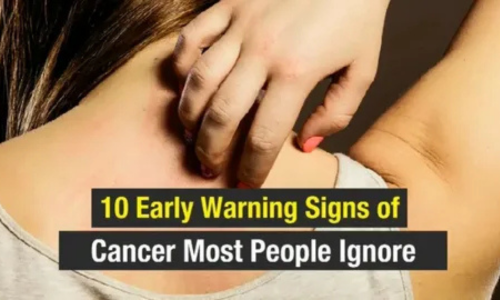
The role of signs and symptoms in detecting diseases
Signs and symptoms are vital tools for identifying the presence of an injury or disease in the body, and signs are usually noticed by others such as a doctor or nurse, while the patient feels the symptoms himself. Early detection of cancer by recognizing silent signs can save lives. In this article, we will review 15 silent signs that may indicate cancer, in addition to the importance of understanding symptoms and consulting a doctor when necessary.
What is the difference between signs and symptoms?
- Signs: are changes that others can notice, such as the appearance of a lump or a change in skin color.
- Symptoms: are what the person feels himself, such as pain or feeling tired.
Both play an essential role in the diagnostic process.
Not always conclusive
The appearance of a single sign or specific symptom is not enough to accurately determine the cause. For example, a rash in children can have multiple causes. Therefore, diagnosis usually requires collecting more signs and symptoms to get a comprehensive picture.
—
Supporting medical tests
When signs and symptoms are not enough to determine the cause, doctors resort to additional tests, such as:
- X-rays
- Blood tests
- Biopsies
- Other tests as needed
15 silent signs that may indicate cancer
1_ Persistent cough:
A prolonged cough, especially if accompanied by other respiratory symptoms, may indicate serious problems such as lung cancer.
2_ Changes in bowel habits:
A frequent change in bowel pattern or the appearance of blood in the stool may be an indication of colon cancer.
3_ Sudden appearance of lumps:
Any unexplained swelling, especially if it is large, hard and painless, requires a medical examination.
4_ Changes in moles:
Any change in the size, shape or color of moles may be a sign of skin cancer (melanoma).
5_ Unexplained weight loss:
A rapid and unintentional weight loss (more than 5% in a few months) may indicate cancer.
6_ Persistent pain:
Persistent pain without a clear cause may be a sign of serious problems.
7_ Difficulty swallowing:
Difficulty swallowing food may be due to tumors in the throat or neck.
8_ Itchy skin:
Unexplained itching may be a result of the immune system’s reaction to cancer cells.
9_ Changes in urine:
A sudden change in the color, smell, or appearance of urine may be a sign of a serious health problem.
10_ Changes in voice:
A sudden or persistent change in voice may be a sign of throat cancer.
11_ Wounds that do not heal:
Slow healing of wounds may indicate that the body is facing a problem such as cancer.
12_ Unexplained bleeding:
The appearance of bleeding in the stool, urine, or when coughing requires consulting a doctor.
13_ Lumps in the mouth or tongue:
The appearance of white lumps or bumps in the mouth or throat may indicate oral cancer.
14_ Swellings under the skin:
Any strange lumps under the skin require a medical examination.
15_ Constant fatigue:
Feeling tired for no apparent reason may be a sign of a serious health problem.
The importance of timely medical care
- Early detection saves lives:
Recognizing and treating signs and symptoms early increases the chances of recovery. - Periodic checkups:
Periodic checkups can detect cancer before symptoms appear. - Don’t ignore symptoms:
Any persistent or worsening symptoms should not be ignored, no matter how mild.
- Comprehensive diagnosis:
Combining signs, symptoms, and medical tests provides an accurate picture of your health condition.
Conclusion
Understanding the signs and symptoms of cancer is an essential step in early detection and effective treatment. Not all symptoms or signs mean you have cancer, but caution and medical follow-up are essential if symptoms persist. Taking care of your health can make a big difference in improving your quality of life.
Leave a Reply